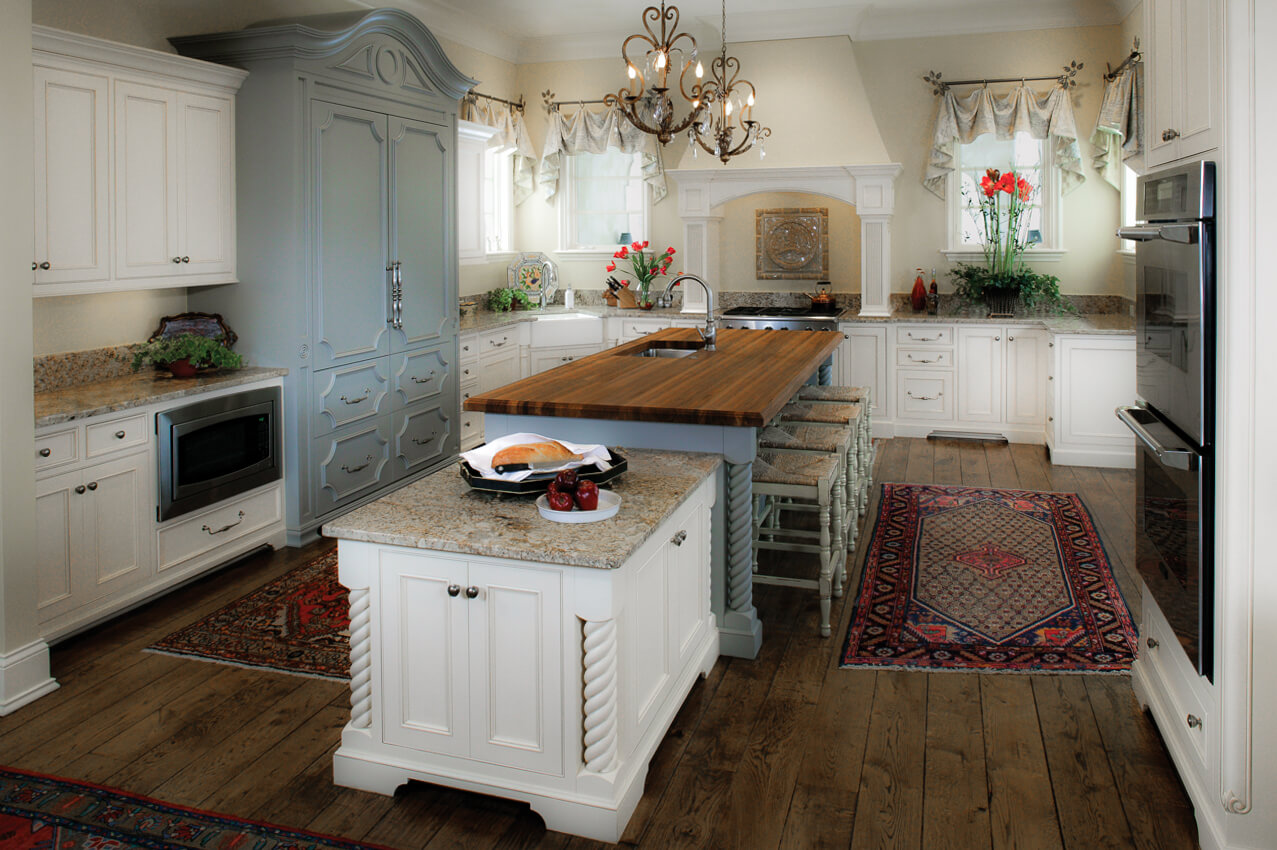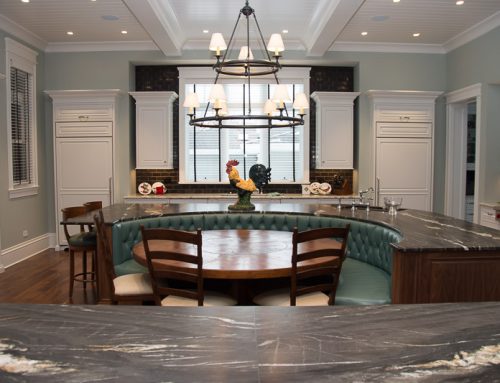Whether you are simply updating your kitchen cabinets or wish to design your own kitchen, knowledge truly is power when it comes to the success of your home renovation. While working with a contractor is critical, it is still important to keep certain tips in mind when beginning these projects. Design projects can involve many different working parts; in order to keep the machine running smoothly, so to speak, you must remain aware of the latest status of each.
Taking an active role in your project is crucial primarily because you want to ensure it is completed on time and on budget. Otherwise, with all of the different players often involved in a renovation, the project can take on a life of its own and spiral out of control.
Fortunately, using the following tips, it is easy to avoid this scenario and achieve your remodeling goals:
- Choose your contractor carefully
- Establish a clear-cut reason for the renovation and plan accordingly
- Make sure your remodeling plan addresses the project as a whole, versus making decisions as they arise
- Remain realistic when creating and presenting your budget
- That said, do not cut costs to the point of sacrificing quality
- Consult professionals that specialize in specific design areas throughout the process
In order to maintain your post as captain of the ship, it is best to navigate the waters of each point mentioned above by educating yourself so that you make solid decisions from the moment remodeling begins until you can enjoy the finished product.
Find Your Perfect Match
A successful home renovation hinges on choosing a reputable contractor who understands and supports both your vision and your budget. Word-of-mouth is often the best tactic for narrowing down candidates. Obtaining recommendations from family members and friends provides comfort and a realistic view of contractors’ capabilities and degree of reliability. If you do not know anyone who has undergone a remodel, you can gain insight from staff at local lumberyards, who are familiar with contractors’ habits because they work with them on a regular basis. The National Association of the Remodeling Industry is another great resource at your disposal.
Employers interview candidates under consideration for hire, and it only makes sense to interview those people who you may hire to work on something as central to your life as your home. When conducting an interview, whether in person or via phone, the following questions will help determine if the contractor is a suitable match for your needs:
- How long have you worked in the industry?
- How long have you worked with your subcontractors?
- Are you willing to share a list of previous clients?
- Have you taken on a project similar to mine before, and if so, was the outcome satisfactory to all parties?
- How many projects have you already scheduled during the timeframe allotted for mine?
- Are you willing to provide proof of financial responsibility via references from banks or suppliers?
Just as in any relationship, you must do your part, as well. Make sure you present a realistic budget and a clearly outlined plan to all candidates, so that all expectations are clear when you begin the project with your final pick.
Know Why You Are Doing It
This tip may sound obvious, but you would be surprised at how easily home owners can get caught up in the excitement of a project and lose sight of their goals. It is critical to establish and stay true to the reason behind each remodel, as it provides essential direction that can alter the desired outcome.
For example, updating all bathrooms and your kitchen with high end finishes like cherry sink cabinets and bathroom cabinets is an inspiring project to undertake for your own enjoyment. However, if the purpose of the remodel is to improve the value of your home to potential buyers, you are more likely to recoup your investment by limiting design updates to the master bathroom and kitchen only, and saving the rest of your budget for less personalized improvements like a fresh paint job and new siding.
Incorporate Every Decision into Your Plan
Making decisions as they arise can lead to poorly researched, spontaneous choices that you may come to regret. Yes, it is important to expect the unexpected during a renovation – but you can also prepare for these shifts by arming yourself with the foundation of a solid, detailed plan. And having this information at your disposal will help you prevail with a cool head regardless of what changes may get thrown your way.
For example, say you initially inform your contractor you would like to build free standing bathroom cabinets in your master bathroom, but grow concerned about the lack of space as the work progresses. By failing to address square footage in your plan, you are forced to deal with the issue under duress.
The piecemeal approach tends to waste money and time because last minute decisions can breed insecurity in both the design team and home owner. When the plan fails to account for certain elements, it can lead to uncertainty, resulting in delays and a breakdown in communication between involved parties.
Avoid this pitfall by working with your contractor prior to beginning work to outline every consideration, as well as the most appropriate solution for any issue that could arise. It is also wise to make copies of the plan for your team to have handy on the job site.
Budget Wisely – and Honestly
While the project budget presents somewhat of a land mine for both the home owner and contractor, establishing a realistic budget and presenting it openly to your contractor are both essential practices to follow for success. If your contractor believes they have less money to work with, they may feel hesitant to select the better quality materials you could afford. You want to derive the most value from the significant investment you are already making.
And doing so does not have to break the bank. For example, wholesale kitchen cabinets are one option for completing a kitchen remodel without exceeding your budget.
With that said, the last thing you want to do is skimp on quality to cut costs. The savings may not add up in the end. Plus, you could end up with cheap materials like plastic plumbing or vinyl flooring that deteriorate quickly, leading to replacement work that may prove more expensive in the long run. Think about the money and time investment of entering into a new project years earlier than expected. Sacrificing quality in the present could very well equate to spending more in the future.
Trust the Professionals
Playing a proactive role in your remodel is crucial, but it is equally important to balance it with the insight of design experts. Your contractor can provide some advice, but those who specialize in areas like kitchen appliances, bathroom finishes and interior lighting can guide you toward the products most suitable for your needs.
For example, a home owner with young children would most likely prefer to steer clear of paint that they cannot wipe clean. A paint specialist can assist in pairing desired shade and texture with “child friendly” lines of paint.
Working with experts can reap financial rewards, as well. By allowing contractors and designers to purchase materials on your behalf, you will benefit from the discounts they receive as part of their trade.
Each and every home renovation is as unique as the home owner taking it on. However, the tips above can serve as a road map to keep you on course throughout the journey. When you carve out a clear path for the project, you will arrive at your destination to find remodel results you love and a budget that has remained manageable.
From selecting the perfect kitchen cabinets to transforming your entire living room, learn more about how you can take control of your home improvement project.




